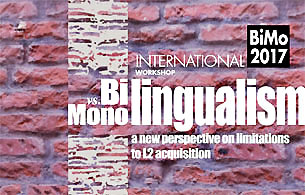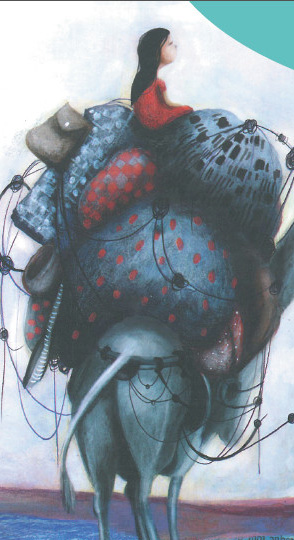powered by Advanced iFrame. Get the Pro version on CodeCanyon.
Résumé
Voir l’intégralité du colloque sur Canal-U
Colloque « Bilingualism vs. monolingualism: a new perspective on limitations to L2 acquisition » organisé par le laboratoire Octogone-Lordat (Université Toulouse – Jean Jaurès) sous la responsabilité de Barbara Köpke (UT2J), Holger Hopp (Technische Universität Braunschweig), Tanja Kupisch (Universität Konstanz), Université Toulouse – Jean Jaurès, 19-20 juin 2017.
The thematic focus of this workshop lies in the question whether there exist qualitative differences between L2 and L1 acquisition. This has been a core issue in acquisition studies ever since L2 researchers turned their attention to mental activities of learners, 50 years ago. The epistemological rationale motivating this research agenda is the expectation of gaining insights into the nature of the human language faculty. Comparisons of acquisition types, e.g. monolingual (L1) and bilingual (2L1) first and child (cL2) and adult (L2) second language acquisition, can reveal parallels and differences in their speech that should enable us to identify factors causing such differences to appear. In other words, we might discover the possibilities and limits of the language making capacity.
However, few of the insights achieved by past research on simultaneous and successive bilingualism are commonly valued as such, although the claim that acquisition types differ in numerous ways is not contested. Yet the consensus ends here. What counts as ‘qualitative’ difference is a controversial issue, not to mention the problem of determining causal factors. I therefore propose to state explicitly the criteria defining qualitative differences and discuss them in some detail, for in distinguishing acquisition types we can only refer to these.
It would be naïve and probably not even desirable to aim at a broad consensus on all issues involved. But if we succeed in identifying empirical findings that do constitute differences distinguishing acquisition types, a more solidly fact-based discussion will be feasible.
As a first step, I argue that not every example of variable use qualifies as a criterion to distinguish acquisition types; past research has not duly considered variability of use within and across individuals and learner types, including L1.
Secondly, I emphasize an apparently self-evident point that tends to be overlooked: quantitative differences are not qualitative ones.
Thirdly, it must be stated explicitly whether observed differences reflect different kinds of linguistic knowledge, acquisition principles, or processing mechanisms. Fourthly, contrasting ‘languages’ as a whole does not yield useful results; we need to know whether attested differences emerge in the lexicon or in the various components of grammar. Finally, I examine what the identified qualitative differences reveal about the relevance of possible causal factors.
Fiche technique
Durée du programme : 51 min
Catégorie : Conférences
Niveau : niveau Master (LMD), niveau Doctorat (LMD), Recherche
Disciplines : Sciences du langage, Linguistique
producteur : Université Toulouse – Jean Jaurès – campus Mirail
Réalisateur(s) : SARAZIN Claire
Editeur : SCPAM / Université Toulouse – Jean Jaurès – campus Mirail
Langue : Anglais
Conditions d’utilisation / Copyright : Tous droits réservés aux auteurs et à l’Université Toulouse – Jean Jaurès.

